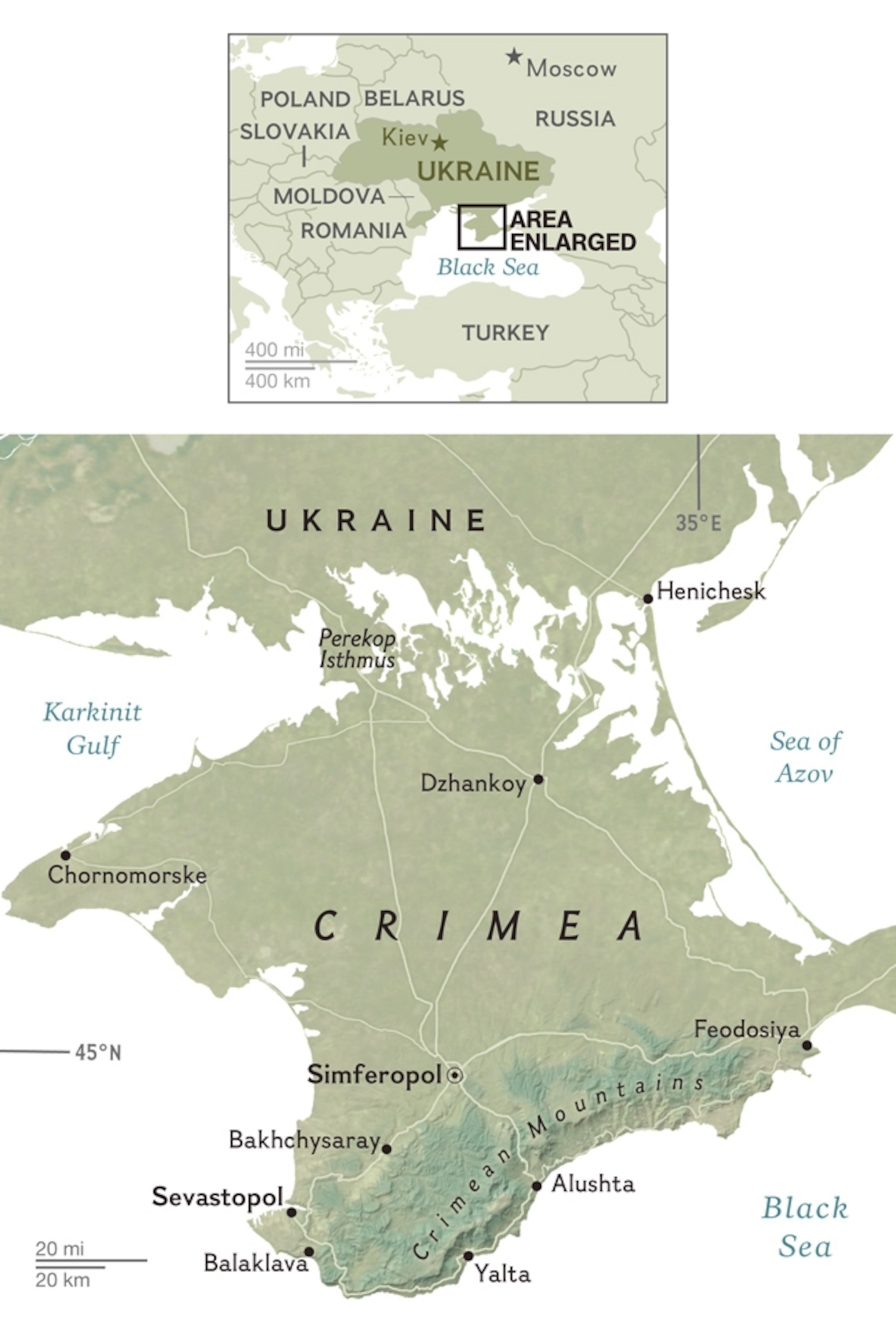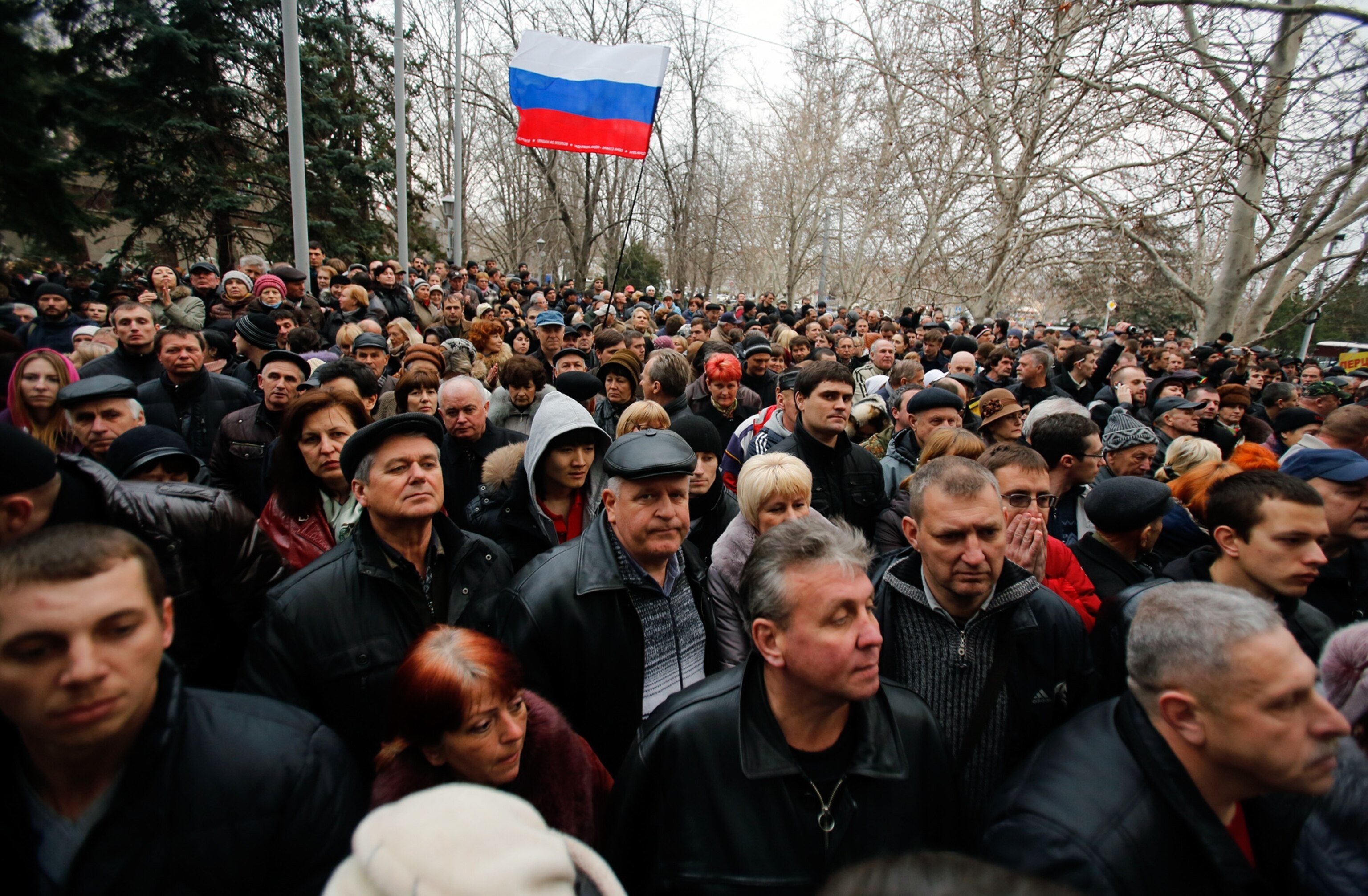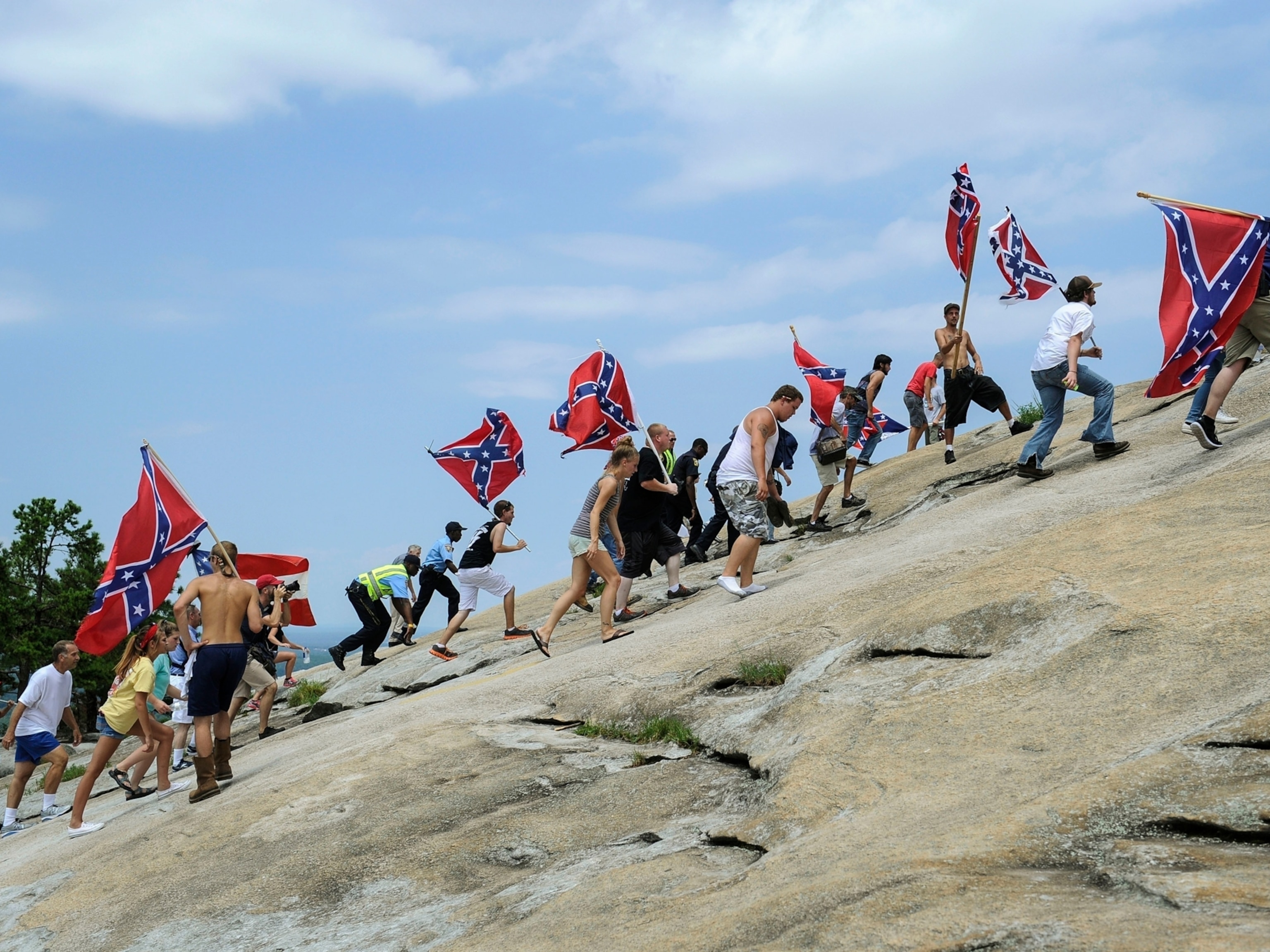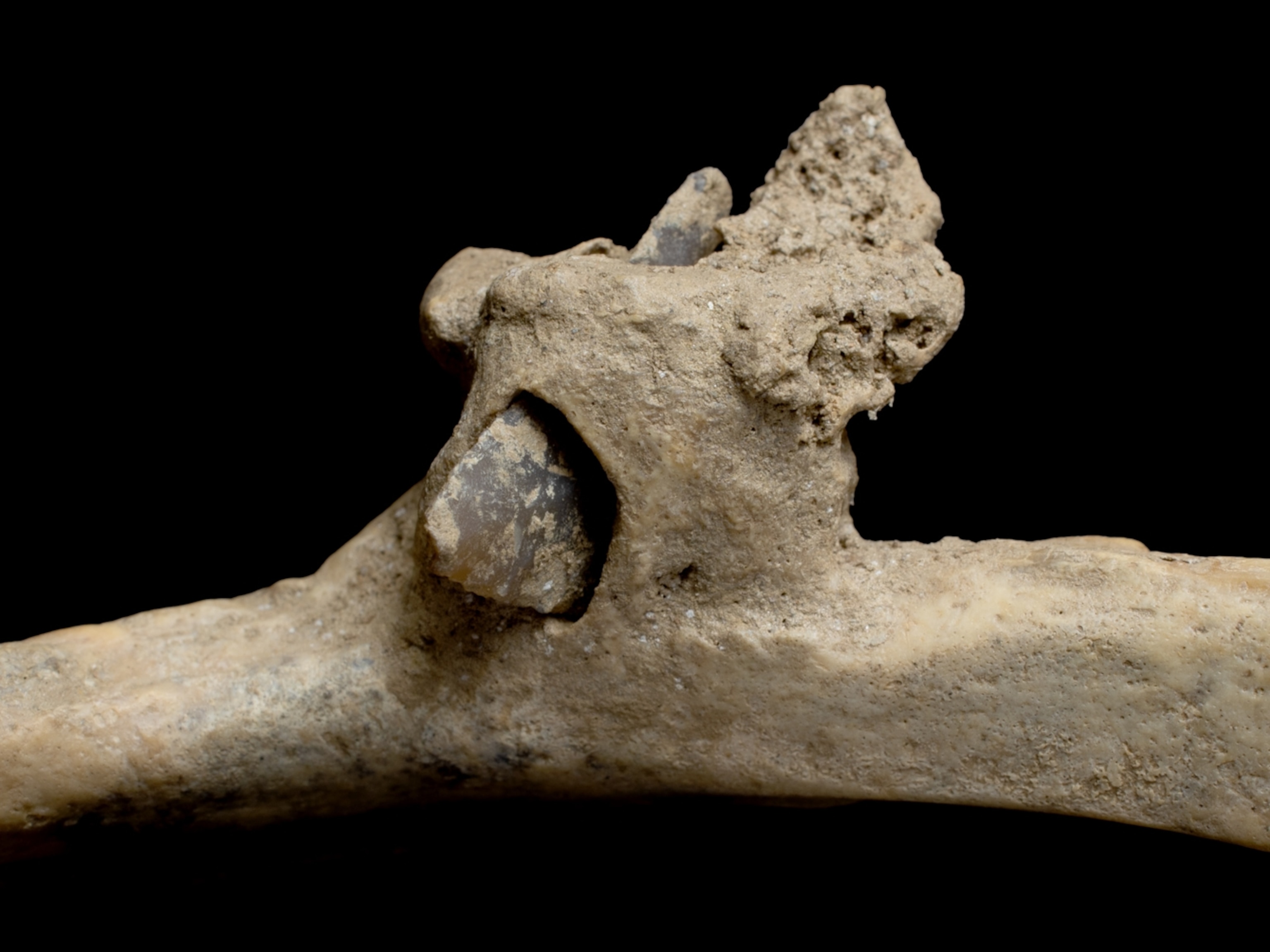
After Ukraine Crisis, Why Crimea Matters
As the unrest in Ukraine continues, questions mount about Crimea's future.
The hunt for ousted Ukraine President Viktor Yanukovych, who fled Kiev last Saturday, is now focused on Crimea in the south. If caught, Yanukovych would be arrested on charges of mass murder in the killings of dozens of anti-government protesters last week. (See "Photos: Ukraine's Ring of Fire.")
Here's a primer on Crimea, a peninsula the size of Maryland that hangs like a pendant from the south coast of Ukraine in the Black Sea. (Related: "How History, Geography Help Explain Ukraine's Political Crisis.")

Why would Yanukovych go to Crimea?
Crimea, like the eastern part of Ukraine, is strongly pro-Russian. Ethnic Russians comprise about 60 percent of the population. In a 2009 poll by the Razumkov Centre, a Ukrainian think tank, nearly a third of the Crimean respondents said they wanted their region to secede from Ukraine and become part of Russia.
But Crimea really is part of Ukraine, right?
Yes, but only since 1954, when Nikita Khrushchev, First Secretary of the Communist Party of the Soviet Union, signed the region over to Ukraine as a gesture of goodwill. The gift was of limited consequence; Russia and Ukraine were both ruled from Moscow then. But after the fall of Communism and the breakup of the Soviet Union, it mattered deeply, and the shift away from Moscow was complete. Officially known as the Autonomous Republic of Crimea, it has its own parliament and capital, Simferopol, but takes its orders from Kiev.

Why does the strong pull of Russia persist in Crimea?
Much can be explained by the Russian word toska, a nostalgia for the past. Under Soviet rule, food prices were kept artificially low, and education and medical care were free. Also, though Ukrainian may be the official language, Russian is the lingua franca. Crimea may be politically part of Ukraine, but it identifies with Russia emotionally and psychologically. As a Russian minister once told a former U.S. ambassador to Ukraine, "In my head, I know Ukraine is an independent nation. In my heart, it is quite another thing."
Why is Russia so resistant to giving up its Crimean foothold?
It goes back to 1783, when Catherine the Great annexed Crimea, thereby adding 18,000 square miles (47,000 square kilometers) to her empire. Warm, lovely, and lush, with a voluptuously curved coast on the Black Sea, it was the retreat of Romanov tsars and, during Soviet times, the playground of Politburo fat cats. "Russia's paradise," Prince Grigory Potemkin, Catherine the Great's general who urged the annexation, called it.
Also—and importantly—it is the home of the Russian Black Sea Fleet, which was allowed to stay in Sevastopol as a result of a deal brokered in 1997. In 2012, Yanukovych extended the lease for 25 years more.
Russian sentiment can be summed up by quoting a letter Catherine the Great wrote to Potemkin after claiming Crimea. "Seizing objects is never disagreeable to us," she said. "It's losing them we don't like."
What other tensions are at play?
There are also ethnic tensions between Tatars—who are largely pro-Ukraine—and Crimean Cossacks, a paramilitary group who consider themselves defenders of Russian nationalist ideology. Tatar leader Mustafa Jemilev has made it clear that they would resist any attempt to move Crimea back into Moscow's orbit. In short, Crimea is subjected to perpetual tugging from many ends—reflective of the area's fragmentation and exacerbated by the struggling economy.
Cathy Newman is the the author of National Geographic's 2011 feature story, Crimea: A Jewel in Two Crowns.



